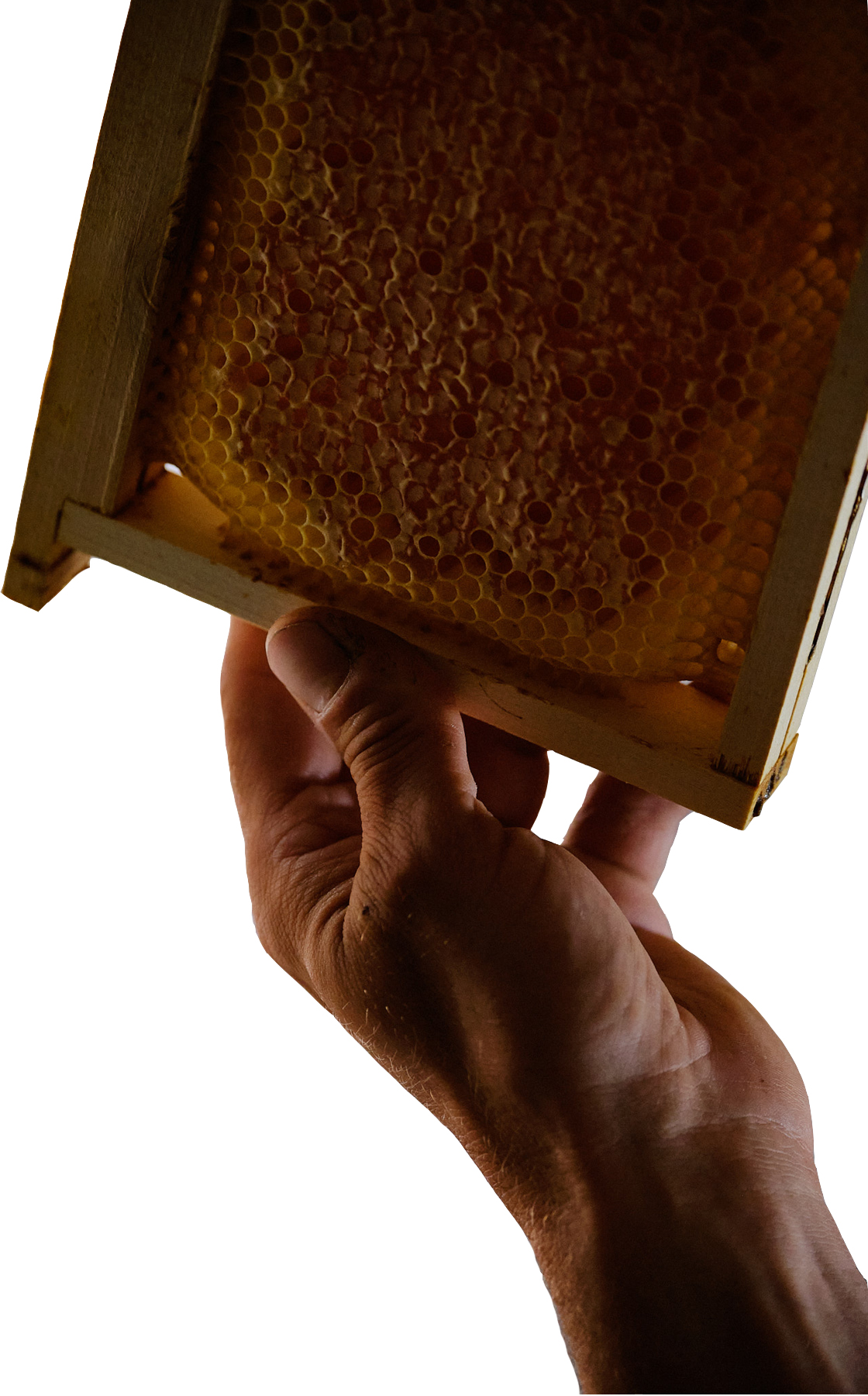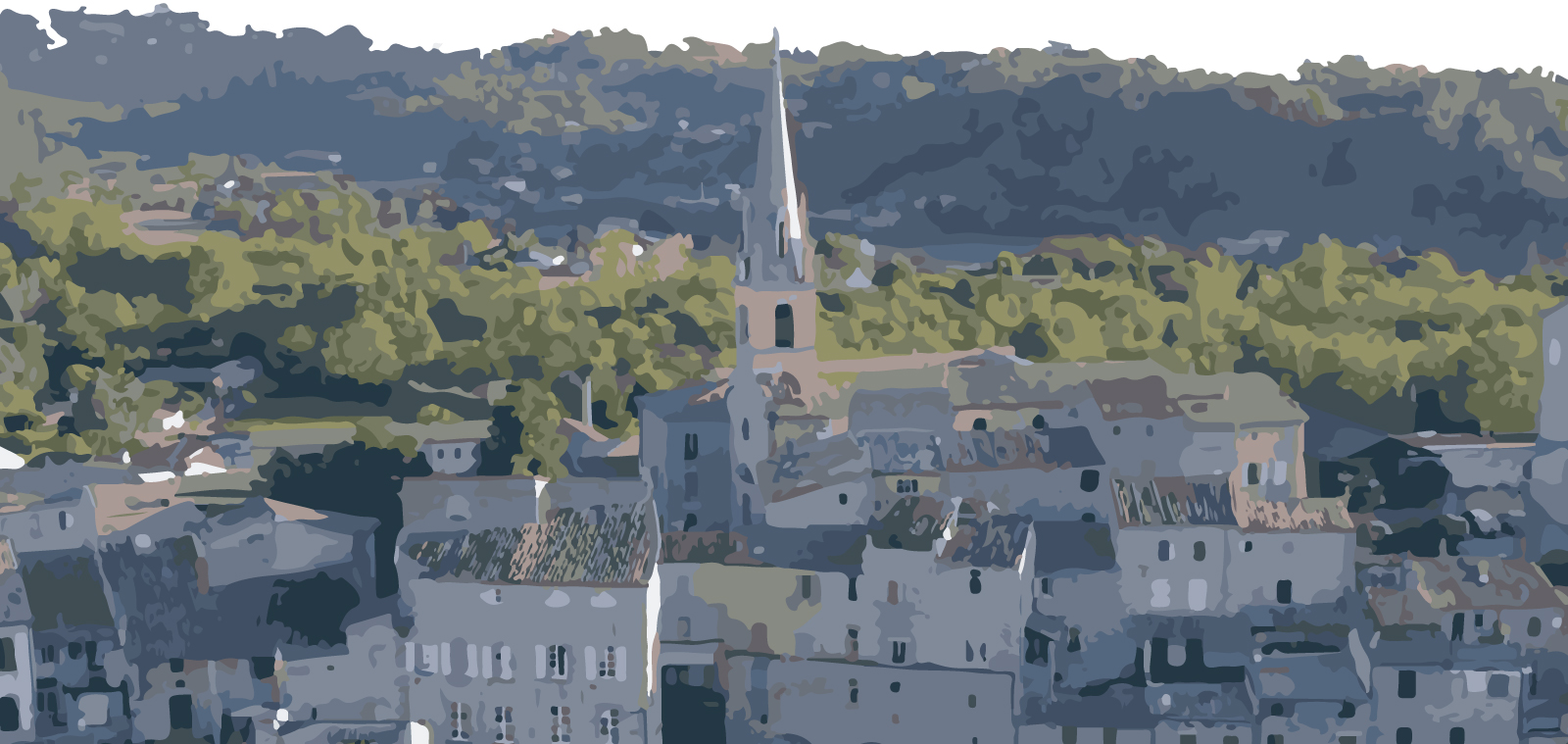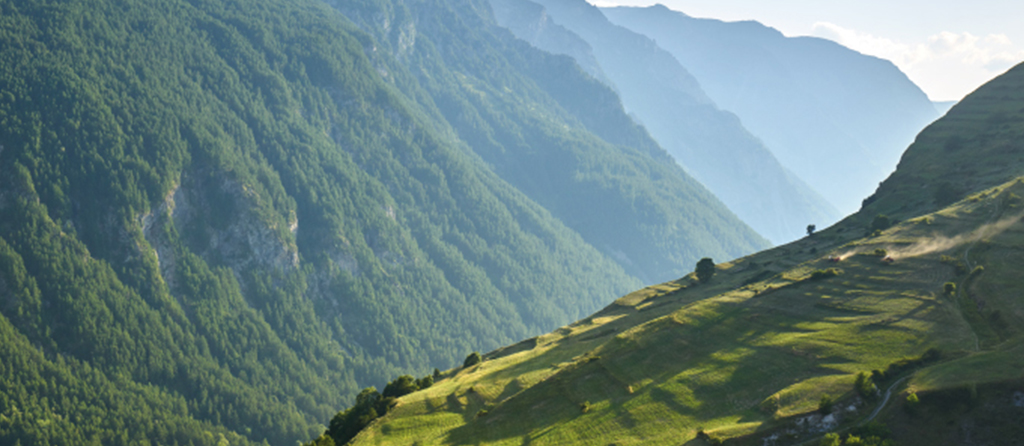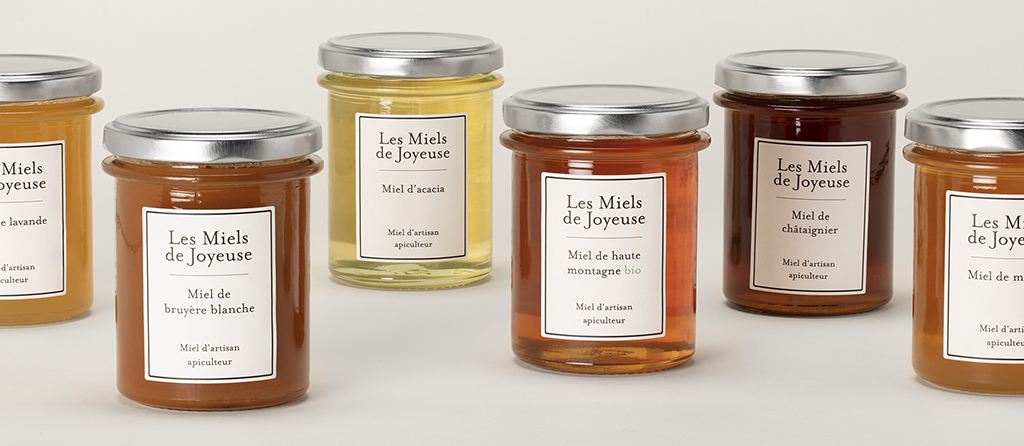Our values
We were inspired by the beauty, purity and naturalness of the Ardèche region. Local bees and beekeepers created the foundation and defined the DNA of our brand.
Joyeuse honeys were born, from the name of a small fortified town which, according to legend, is linked to Charlemagne's sword. The numbered flagship nectar is the fruit of a unique harvest on the crest of the Thines mountains, near Joyeuse. A rare honey from a pure environment. With a keen eye for the label, but above all for ethics, we have continued our quest for exceptional honeys made in France with respect for the environment.
So we went a little further afield, tasting the flavors of other natural parks, in Carmague, Haut-Languedoc, Vercors and as far afield as Morvan. Each territory, each flower, has enriched our range of honeys, with one thing in common: quality. Today, our honeys come from nine natural parks endowed with extraordinary biodiversity. They are harvested in well-preserved areas and from farms on a human scale, where the beekeeper works in symbiosis with his livestock and his environment. In making our selection, we are guided by three essential values: respect, know-how and terroir.
Respect guides all our actions: towards the beekeeper, the environment, the bees, the honey and the consumer.
Artisan beekeepers manage beehives on a human scale, adopting practices in keeping with the natural rhythm and well-being of the bees. The choice of sites is based on the presence of rich, varied and unpolluted flora.
Queen and swarm rearing takes place on the farm, and hives are moved within a limited perimeter during transhumance.
Know-how stems from mutual respect.
Choosing to work with small-scale beekeepers means choosing traditional, artisanal know-how.
Each honey is an encounter with a beekeeper who loves to talk about his land, his flowers and his bees. In the jars, this know-how translates into genuine traceability and top-quality honey.
You can feel the terroir in every jar of honey.
Whether sedentary or transhumant, our beekeepers know the local melliferous varieties inside out. Each harvest area, each flower, each season, each climate gives a unique character to the product. Each jar of Joyeuse honey evokes a region with a unique character.

Signed honeys at the point of the sword
The town of Joyeuse in the Ardèche owes its name to Charlemagne who, while at war with the Saracens, is said to have lost his sword named "Joyeuse" during a battle on the banks of the river La Beaume. When a soldier found the sword, the emperor gave him the surrounding lands as a reward, giving him the title of seigneur "de Joyeuse". Legend or historical fact, this small fortified town with its medieval streets has seized on history to build its reputation. Nowadays, visitors come here for its historic heritage as much as for its stunning scenery.
Located in the Monts d'Ardèche nature park, this village of just 2,000 inhabitants is working hard to preserve and enhance nature. A source of inspiration, it holds a special place in the hearts of local residents, craftsmen and farmers. Our first apiaries were set up around Joyeuse, in the heart of the Cévennes. And so it's our turn to take the name of the famous sword, perfect to illustrate our range of natural honeys made in the traditional way. In each jar, you'll find a piece of the land and flavors that explode in your mouth.




